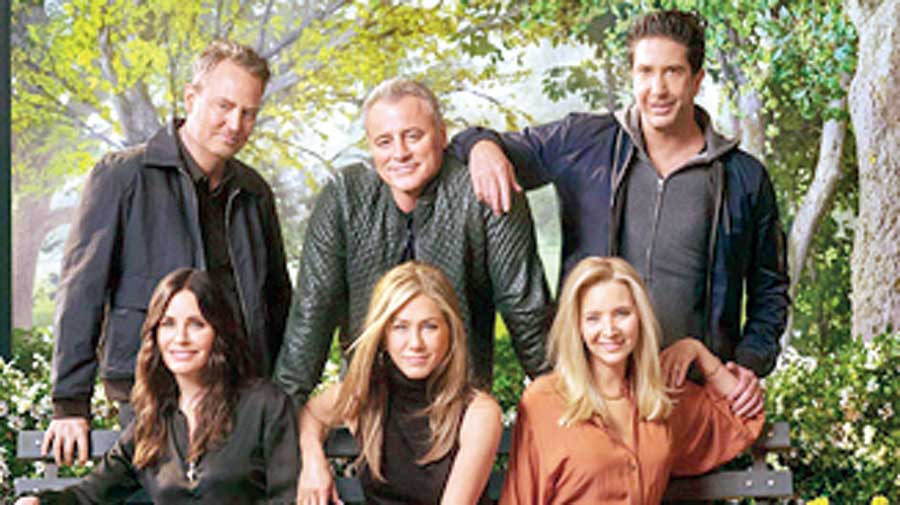Sir — The world hung on to every word uttered in the Friends reunion episode aired recently. But for some of those who had enjoyed watching the show as youngsters, the episode was a long, painful reminder of how white privileges are taken for granted and all the other problems that the show tried to normalize — the body-shaming of a younger Monica, or the male characters’ homophobia, and the lack of racial diversity — are just some of the instances that make socially aware individuals cringe. The ‘friends’ said they will not reunite again — we can only be grateful.
S. Banerjee,
Calcutta
Bitter battle
Sir — The editorial, “Tug of war” (May 29), rightly pointed out that in the war of words between the Indian government and social media giants, such as Twitter, “[b]oth sides need to see reason and act with maturity; threats and accusations will benefit no one.” The Information Technology (Intermediary Guidelines and Digital Media Ethics Code) Rules, 2021 have proved to be a bone of contention between tech companies and the Indian government. The battle has now reached the Delhi High Court, with WhatsApp filing a lawsuit challenging some provisions of the rules as unconstitutional and inimical to the privacy of individuals.
Under the new IT rules, social media platforms like Twitter are required to process official requests for content removal within 36 hours, failing which could expose their local employees to legal action, including seven years of imprisonment. If the firms fail to obey the new rules, they run the risk of losing their “intermediary” status in the country. This status protects them from being prosecuted for objectionable posts made on their websites. In the recent past we have seen the government block the Chinese app, TikTok. Many fear that Twitter will suffer the same fate. One hopes the case will reach a consensus wherein balance can be maintained between the country’s interests and individuals’ rights.
Ashoke Basu,
South 24 Parganas
Sir — If social media sites like Twitter are banned in the country for taking a stand regarding the fundamental rights of Indian citizens, then India will no longer have the right to call itself a democracy. The new IT rules are not just autocratic but they also reveal a lack of understanding about how the internet works. The latter revelation is worrying for more than one reason. If this is the awareness that our policymakers have about the world wide web, how will they frame laws that protect the interests of Indians?
The data privacy law, if and when it comes into effect, must be framed by independent experts and should include provisions that protect citizens from the government’s excesses as well. Internet rights, in the future, must be treated as fundamental rights.
Piyali Patranobis,
Calcutta
Long process
Sir — If there is one lesson this last week has taught me it is that there is nothing certain about life. One minute you are sitting with your family, laughing over an old joke, and the very next minute, you might find the most unexpected person in the room battling for survival. The pandemic is like a giant tsunami that has swept everyone off their feet. Times are such that one cannot even provide friends and family a shoulder to cry on. Hugs have become virtual. So has grief.
Grief is a funny thing; the realization that you cannot hear from a person ever again brings with it an emptiness that can be numbing. Grief is not as simple a process as it is thought to be. Science says there are five stages of grief; yet, in the last few weeks, I have experienced so many different stages of grief and there is definitely no sequence, no order to them. All the pain reverberates inside us, whether we acknowledge it or not. This reminds us more than ever before to be thankful for every breath we take. But people must also be told that it is alright to feel remorseful about being alive. Do whatever you have to in order to get through the day because this too shall pass.
Gitanjali Sharma,
Calcutta










